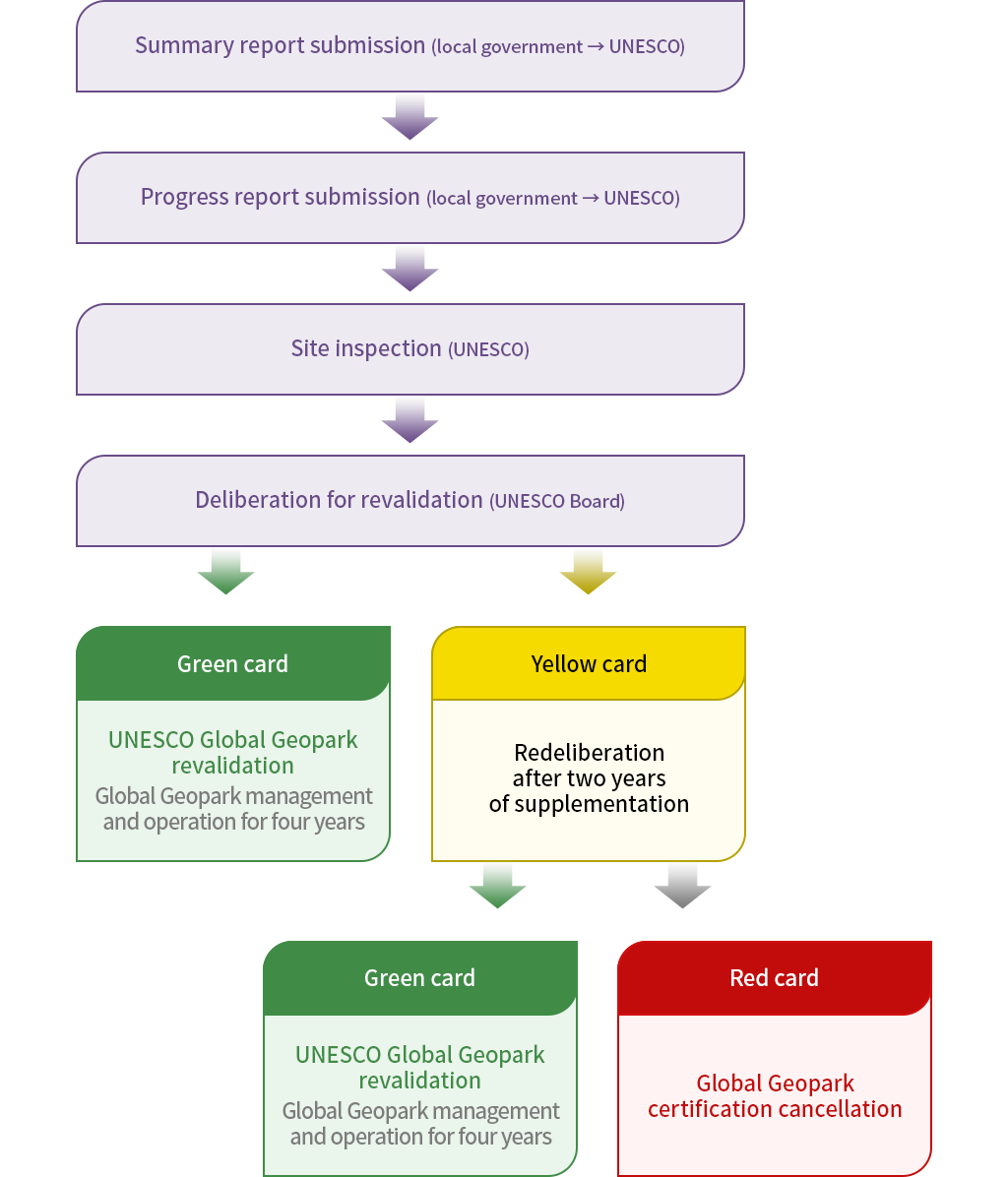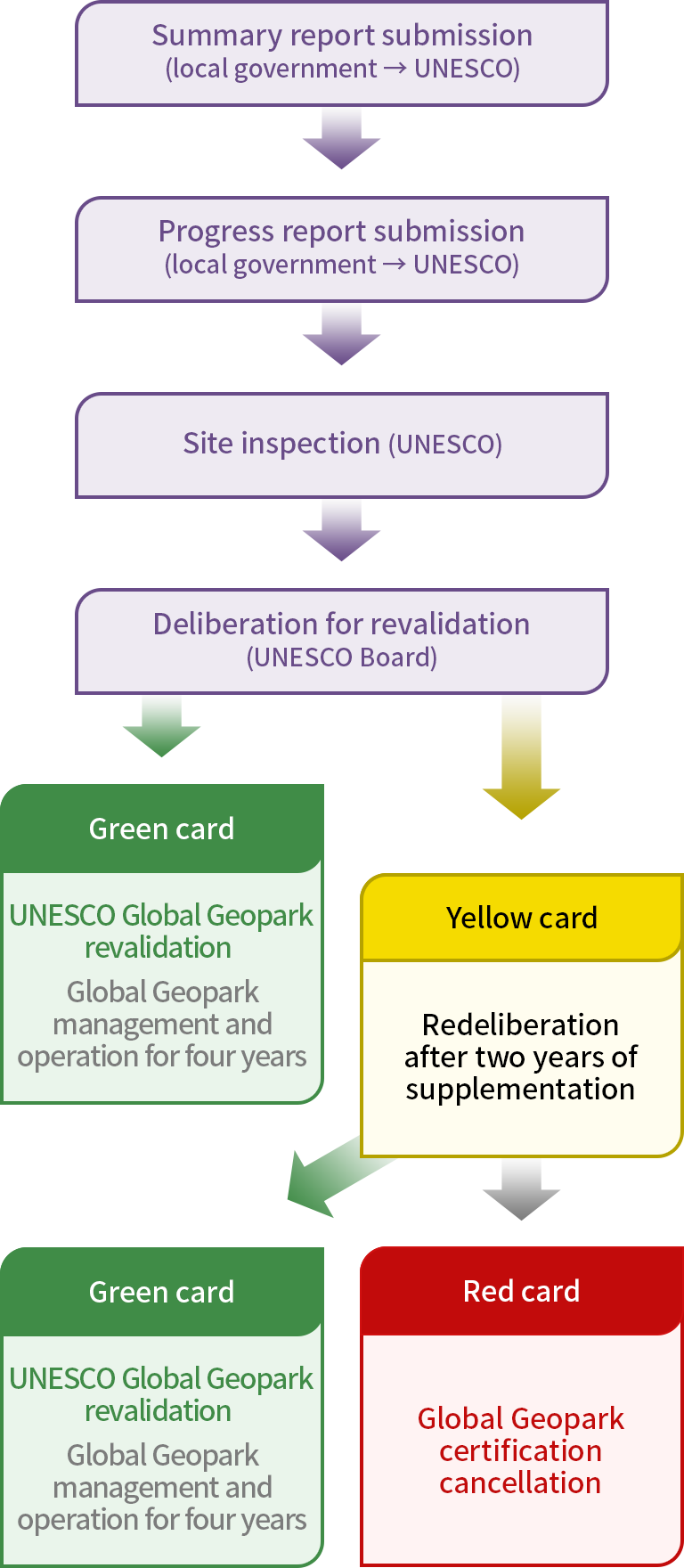

Definitiion of Global Geopark
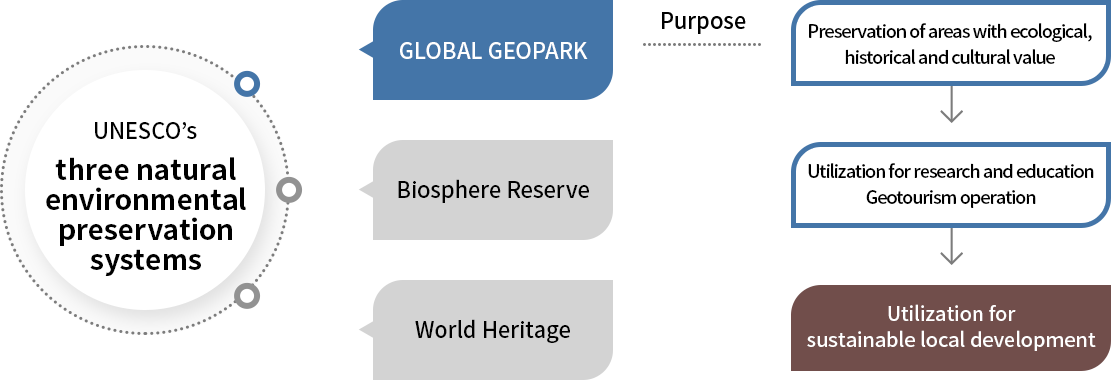
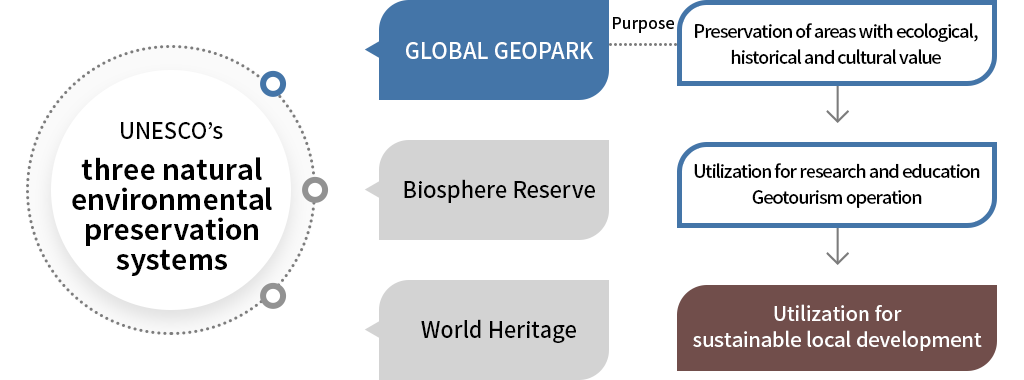
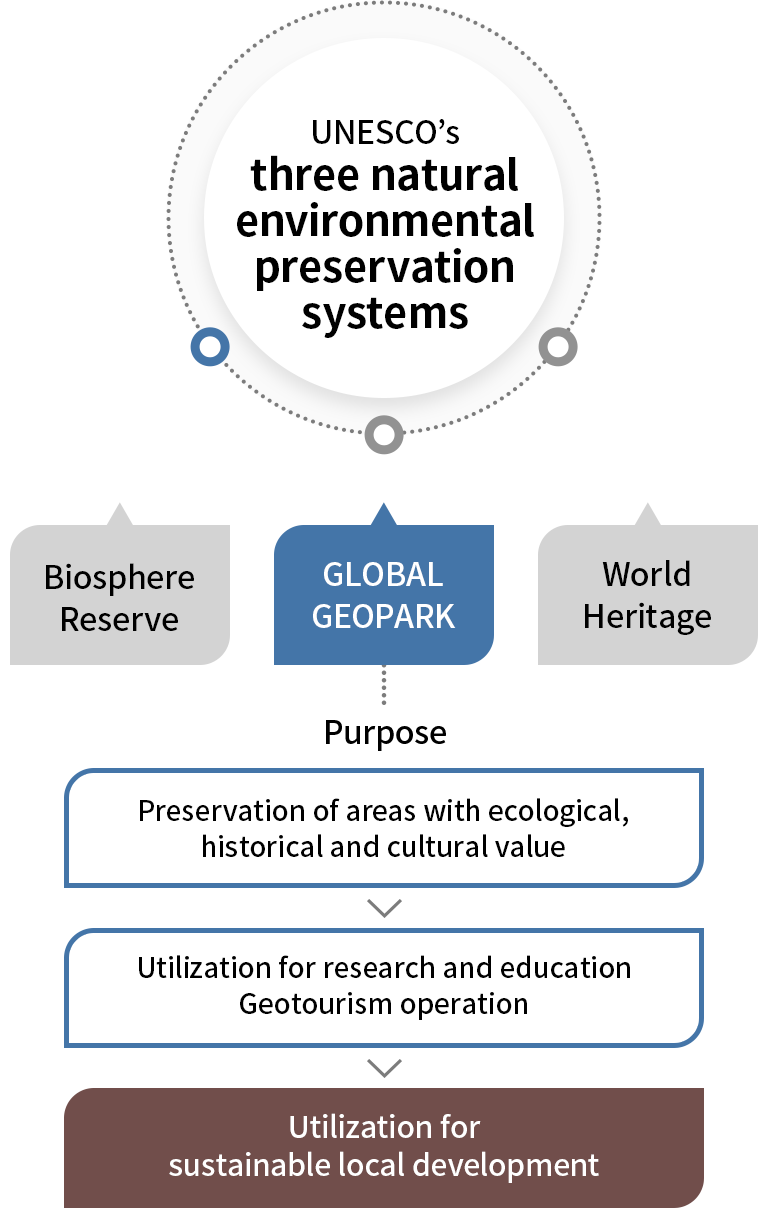
Global Geopark, one of UNESCO’s three natural environmental preservation systems –“World Heritage”, “Biosphere Reserve” and “Global Geopark”- aims for sustainable local development by preserving areas with topographical and geological heritage, ecological, historical and cultural value and utilizing them for research and education, while also operating geotourism(tourism utilizing natural topographical and geological heritage) with the areas. UNESCO Global Geopark became its official program at the 38th UNESCO General Conference in 2015.
Global Geopark adopted top-down method through formation of the geopark network in February, 2004. As of July 2022, 177 Global Geoparks in 46 countries including Jeju Island, Cheongsong, Mudeungsan Mountain area and Hantangang River Global Geopark in Korea were active members.
To join Global Geopark, an application needs to be submitted to UNESCO. Then, membership can be granted based on site inspection and certification. Global Geopark adopting certiciation system-based operation like National Geopark, is subject to membership reevaluation every four years. According to the results, parks can be recertified as Global Geopark or excluded. In cases of failure to be recertified, National Geopark status can be maintained.
There are the Global Geoparks Network(GGN), European Geoparks Network(EGN) and Asia Pacific Geoparks Network(APGN).
UNESCO Global Geopark Certification
- The objective is to develop local economy through preservation, education and tourism by utilizing all regional resources; geological, biological, archeological, historical and cultural.
- Unlike those subject to protection with restriction of action including World Heritage, Biosphere Reserves, National Park System and Wetlands Protection Areas that should be protected and preserved as the first priority, there are no restrictions on local residents’ exercising their property rights due to designation of key objects of attention such as Geo sites without separate zoning.
- With conservation of geological attractions, they can be utilized for educational and tourism purposes at the same time. Global Geopark is an alternative park system aiming to increase local residents’ income and develop the local economy.
UNESCO Global Geopark Certification Procedure
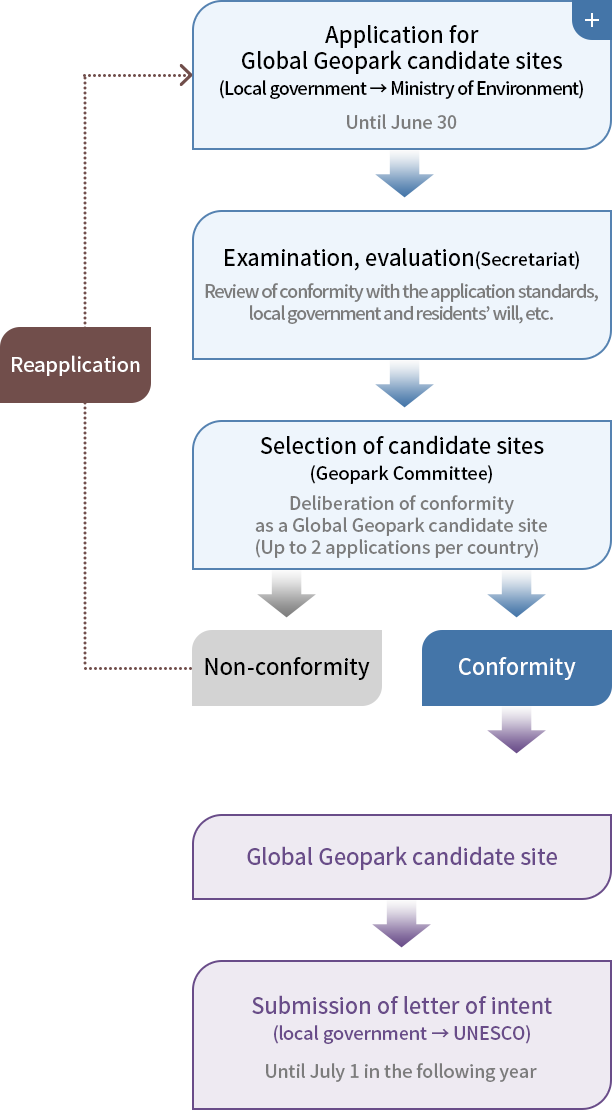
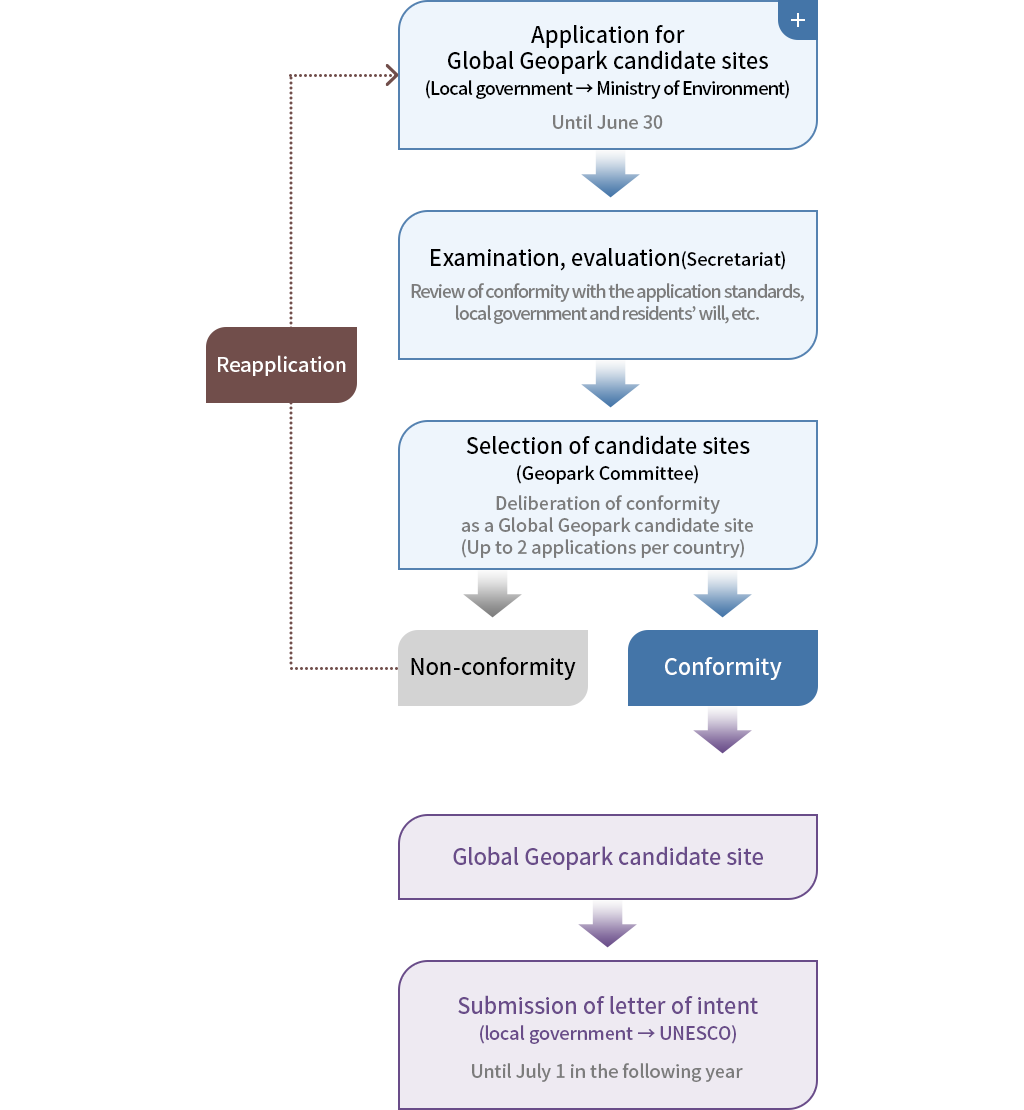
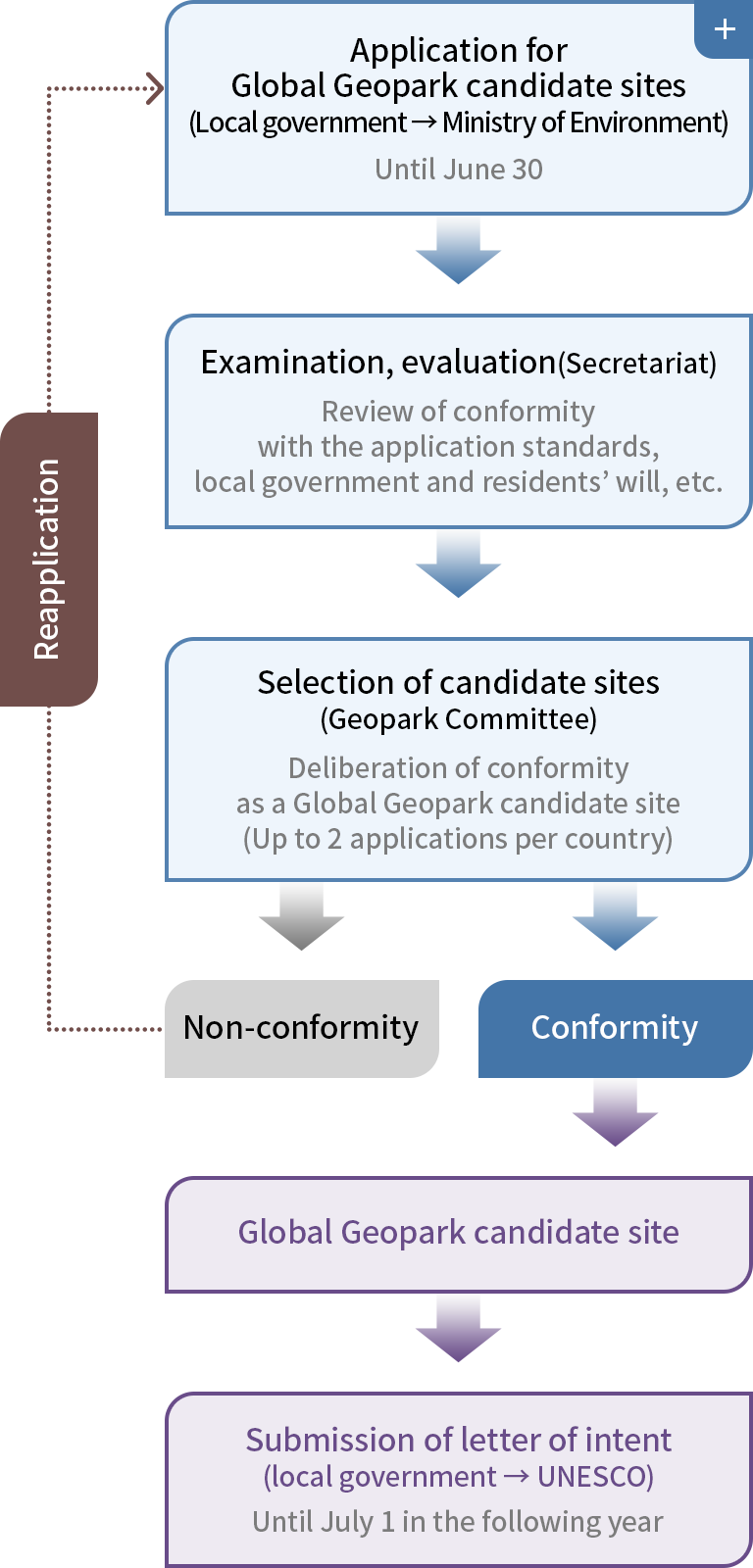



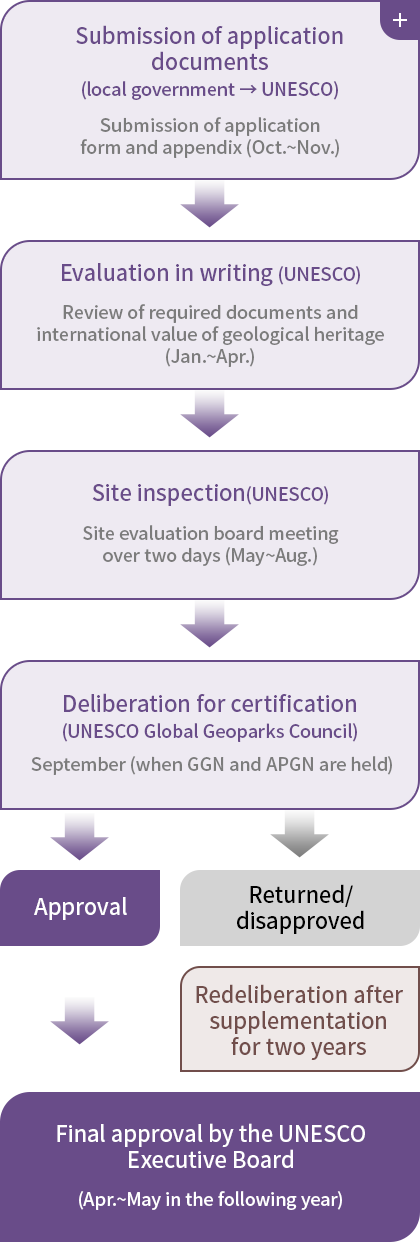
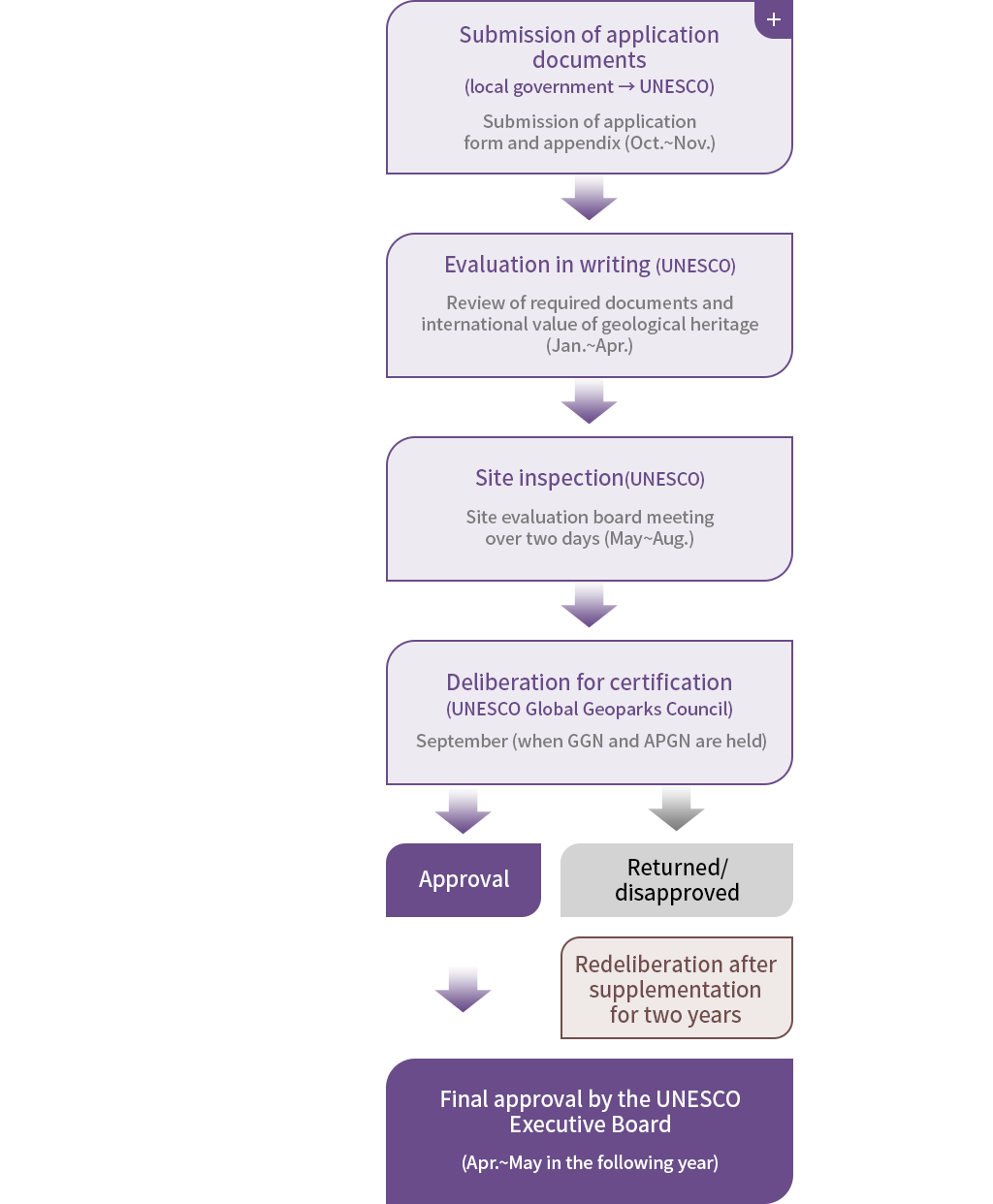
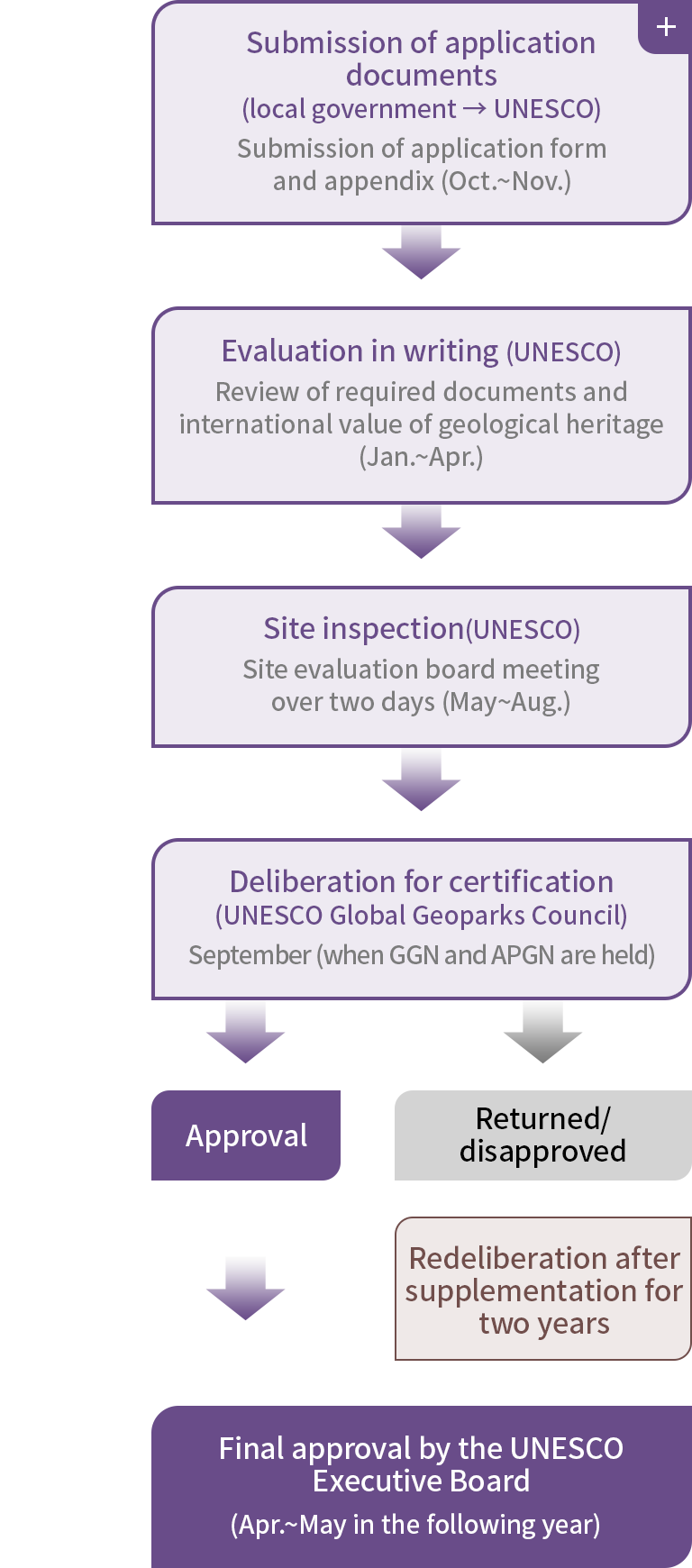
유네스코 절차
신규 신청(New application)
지질공원위원회 심의결과 세계지질공원 후보지가 되면 다음 해 7월 1일까지 유네스코에 신청의향서(a letter of intent)를 제출하고, 같은 해 11월 30일까지 신청서류를 제출합니다. 유네스코는 서류 검토 후 신청요약본을 홈페이지에 3개월간 게시하고 다른 회원국의 이의신청이 없으면 5월부터 8월 사이 2명의 평가자를 보내 현장 실사를 합니다.
현장실사를 마치면 9월 유네스코 세계지질공원 이사회의 심의를 받습니다. 이 때 승인(accept)이 되면 등재권고를 받은 후 다음 해 4월에 열리는 유네스코 집행이사회에서 세계지질공원 인증을 최종 승임받게 됩니다.
10%이상 면적 확대 시
세계지질공원이 된 후 확대하고자 하는 면적이 기존의 10%미만이면 보고서만 제출하여 승인받으면 되지만, 10% 이상이라면 신규 신청때와 똑같은 절차를 다시 거쳐야 합니다.
UNESCO Global Geoparks Revalidation Procedure
UNESCO Global Geoparks also require revalidation every four years. One year before the revalidation year, a summary report and progress report up to the end of January of the revalidation year should be submitted to UNESCO before site inspection.
After the UNESCO Board’s review of the reports, revalidation is decided upon. When the concerned geopark is deemed to satisfy all the standards, a green card is granted and UNESCO Global Geopark status is maintained. If it is deemed to have fallen short of the standards, a yellow card is given, then after two years of supplementation, reports for revalidation should be submitted again before site inspection and the Board decides upon revalidation once again. If it is still deemed to be substandard, a red card is given and the park will lose its Global Geopark status.
